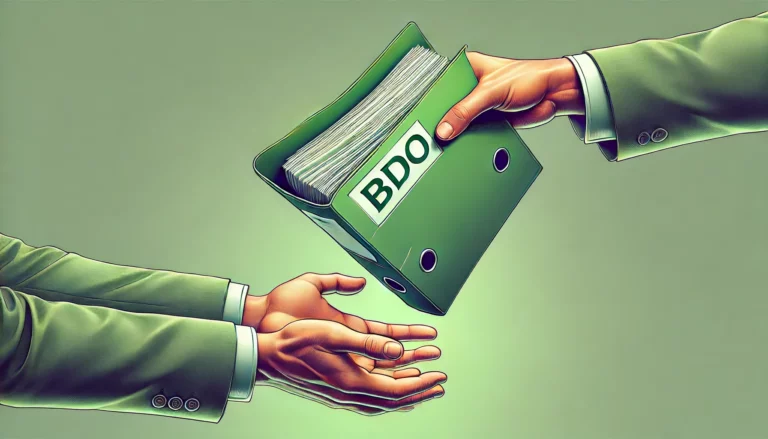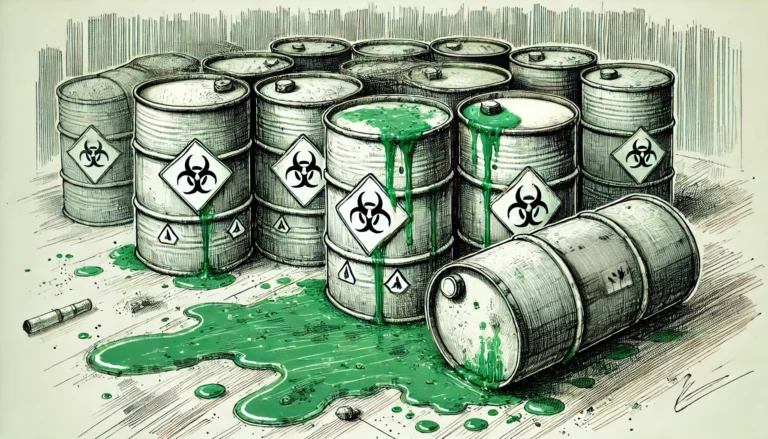Why are waste permits the cornerstone of responsible business?

Waste permits ensure that the company that holds them complies with strict requirements for the management of such materials. At the heart of each of these is a desire to care for the environment, and obtaining one can often be problematic. However, it is worth obtaining one, as it is the foundation of responsible business.
Contact for waste transport permits
What are waste permits and who do they apply to?
Waste permits are official documents that allow companies to manage waste legally. They concern both its production and transport or processing. In Poland, this obligation is regulated by regulations Waste Act of 14 December 2012and their compliance is supervised by environmental authorities. And what does it look like in other countries? You can read about it in this article, in which we focused on the issue of waste transport.
Who needs to obtain permits? Due to the broad spectrum of the issue of waste management, different types of permits are distinguished. They must certainly be obtained:
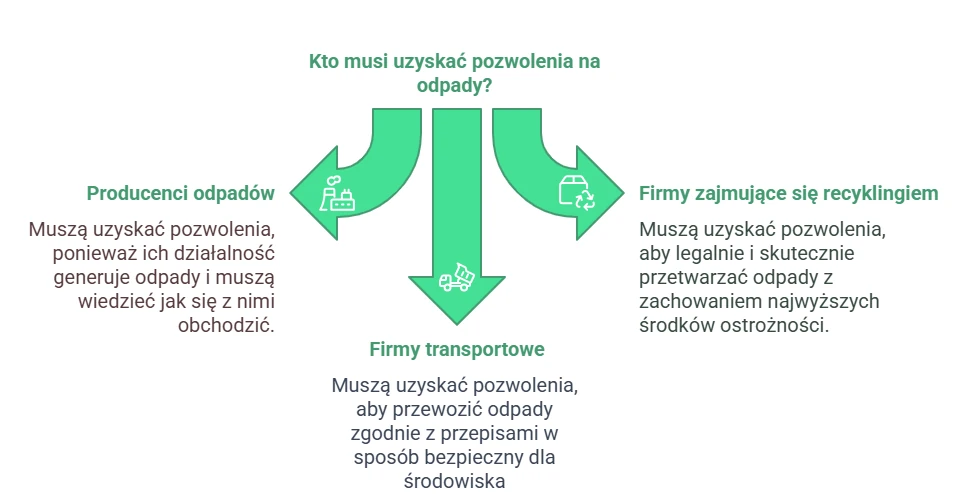
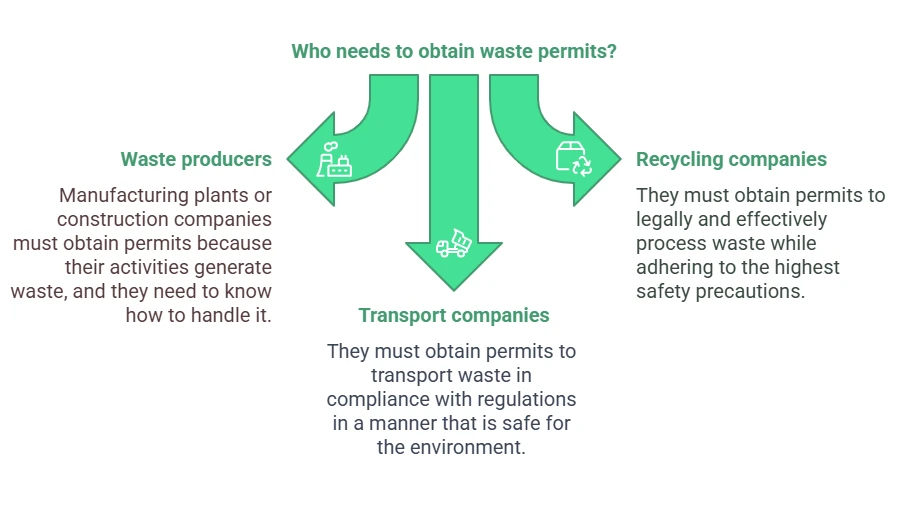
Failure to obtain the appropriate permits can result in severe sanctions, so it is important that companies comply with the regulations in this area.
Waste permits - the key to legitimate business operations
Obtaining a waste permit is a guarantee compliance with legal provisions. It not only brings order to waste management processes. It also protects the company from administrative fines, which can amount to hundreds of thousands of zlotys. If operations in another country are involved, this amount may be multiplied due to the different currency.
No licence can also result in the interruption of business operations, which affects not only the finances but also the reputation of the company. Therefore, investing in obtaining the relevant permits is fundamental to the stable and responsible operation of a business.
Environmental responsibility and benefits
Every business has an impact on the environment. Having a waste permit is a step towards minimising the negative effects of the company's activities. By complying with environmental legislation, the amount and treatment of waste can be effectively controlled.
Legal waste management also prevents uncontrolled waste disposal, which helps to conserve natural resources and minimise the emission of harmful substances into the environment. Companies with permits are working towards sustainability, which is not only a legal requirement today, but also a moral one.
Improved reputation and trust among customers and partners
Waste permits are also an important part of building trust. Customers are increasingly paying attention to the environmental performance of companies, and having a waste permit demonstrates responsibility and commitment to the environment.
Business partners who care about the environment will undoubtedly choose a company with the appropriate permits. This is because they can be sure that the company complies with regulations and operates in an ethical manner. This increases the company's credibility in the market and helps win new contracts.
Efficient waste management as a tool for cost optimisation
Adequate waste management, backed by permits, allows the company to better plan and control its processes. This allows waste to be minimised and resources to be used more efficiently.
Companies with waste permits can also benefit from financial support programmes for environmental measures such as recycling or the introduction of modern technologies. This all translates into real savings and increased operational efficiency.
How to obtain waste permits?
The process of obtaining a waste permit may seem complicated, but following it is crucial for a company to operate legally. Depending on what the company wants to deal with, the different steps in applying for a permit can vary. However, there are generally three main steps: gathering the necessary data, submitting the application and auditing. The situation is slightly different for permits for waste transport. However, we have devoted a separate section to this issue.
Avoiding formal errors in the application process helps to speed up the whole procedure. It is also worth enlisting the help of specialists to guide the company through all the stages.
Waste transport
Waste transport is a process that requires special attention. This is because it involves a high risk of harm to the environment. A waste transport permit is a document that allows waste to be transported legally. Companies involved in the delivery of this type of material must comply with certain requirements, such as proper marking of vehicles, driver training and adherence to safe transport rules. This avoids incidents that could adversely affect the environment or human health.
Benefits of having a waste transport permit:
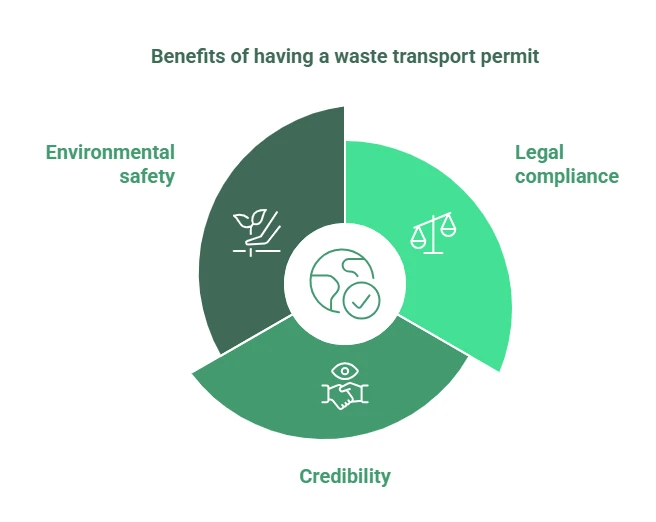

- The permit protects against legal consequences, including heavy fines for illegal waste transport.
- Customers are more likely to choose companies that operate legally and comply with safety standards.
- Thanks to controlled transport, waste is delivered to sites for disposal or recycling, minimising the negative impact on nature.
When obtaining a waste transport permit, it is crucial to prepare documentation detailing the type of waste transported, the vehicles used and safety procedures. Taking care of these aspects is another step towards responsible waste management. It is worth mentioning that not every country requires a waste permit for transport. However, those that do expect it from the haulier impose a number of requirements and rules. Breach of these is usually severely punished.
Summary
Waste permits are not only a legal requirement, but also a real support in building a responsible and modern business. Regulatory compliance, environmental protection, improved reputation and cost optimisation are just some of the benefits of having them.
By investing in obtaining the relevant permits, the company shows that it cares about the future - both its own and that of the world around us. Remember: responsible waste management is the foundation of stable and ecological growth.




